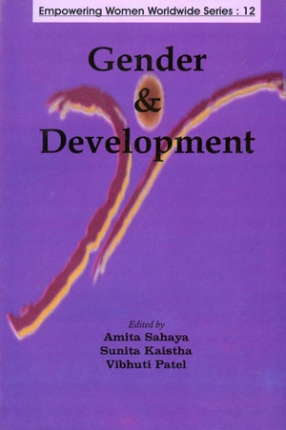The Millennium Development Goals commit the international community to an expanded vision of development, one that vigorously promotes human development as the key to sustaining social and economic progress in all countries, and recognizes the importance of creating a global partnership for development. It is important to examine MDGs in the context of macro economic framework. The Millennium Development goals (MDGs) are Eradication of Poverty and Hunger, Achievement of Universal Primary education, Promotion of gender Equality and Empowerment, reduction of Child Mortality, Improvement of Maternal Health, Combat HIV/AIDS, malaria, T.B., Ensure Environmental Sustainability and develop a Global Partnership for Development. The goals have been commonly accepted as a framework for measuring development progress. Achieving the MDGs by 2015 will require more focus on development outcomes and less on inputs on development outcomes and less on inputs, to effectively measure national progress towards meeting the MDGs, and to engage even more closely with out partners in helping governments improve human development. The Millennium development Goals are parameters for measuring the economic progress of any country. The goals establish yardsticks for measuring results, not just for developing countries fund development programs and also for the multilateral institutions that help countries implement them. The first seven goals are mutually reinforcing and are directed at reducing poverty in all its forms. All countries will benefit if trade barriers are lowered, allowing a freer exchange of goods and services through liberalized macro-economic policies.
The Macro Economic Policies and the Millennium Development Goals
$34.20
$38.00
In stock
Free & Quick Delivery Worldwide
All orders amounting to US$ 50 or more qualify for Free Delivery Worldwide. For orders less than US$ 50, we offer Standard Delivery at $14 per book.
ABOUT THE AUTHOR Manisha Karne
Dr. Manisha Karne is reader in Post Graduate department of Economics Women’s University. She was awarded Doctoral degree in economics for her Ph.D. thesis on “Decentralization of Infrastructural servicesâ€. Her area of interest is Economics of physical and Social Infrastructure and she has worked on research projects in the area of Transport economics. Her paper on “An Enquiry in to production efficiency and profitability in MSRTC†has appeared in economic Political Weekly. She is advisor for SIGMA Project which is focused on the promotion of collaboration between Education and Industries for NSS College in Mumbai. She has participated in various National and International seminars and Conferences on Issues related to Physical Infrastructure and Social Infrastructure
ABOUT THE AUTHOR Vibhuti Patel
Dr. Vibhuti Patel holds a Doctorate in Economics. She has been the founder member and Trustee of Anusandhan Trust and its institution Centre for Enquiry into Health and Allied Themes (CEHAT). She has made contributions in Women’s Studies and Gender Economics. She has co-authored two books: Indian Women: Change and Challenge and Reaching for Half the Sky. For twelve years she wrote on Development Studies and Gender Issues for Economic Times and several academic journals. She worked as a reader at Research Centre for Women’s Studies, SNDT Women’s University for 5 years (1988-1993). She has authored research monographs on Women’s movement, Sex Determination Tests and Work Participation of Women and has presented papers in several national and international seminars, workshops, training programmes and conferences on development studies with gender perspectives. At present she is Co-ordinator at Sophia Centre for Women’s Studies and Development, an autonomous centre housed in the Sophia College campus, Mumbai.
reviews
0 in total
Review by Anonymous
Be the first to review “The Macro Economic Policies and the Millennium Development Goals” Cancel reply
You must be logged in to post a review.
Bibliographic information
Title
The Macro Economic Policies and the Millennium Development Goals
Author
Edition
1st ed.
Publisher
ISBN
8121209250
Length
342p., Tables; Figures; References; Index; 23cm.
Subjects
more by Vibhuti Patel see more
Girls and Girlhoods at Threshold of Youth & Gender: VACHA Initiative
Papers presented at the ...
$83.70
$93.00
similar bookssee more
Land Reforms and Rural Development in the State of West Bengal
The present book entitled ...
$22.80
$24.00








There are no reviews yet.